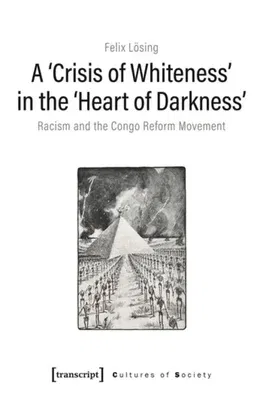Felix Lösing
(Author)A 'Crisis of Whiteness' in the 'Heart of Darkness': Racism and the Congo Reform MovementPaperback, 27 December 2020

Qty
1
Turbo
Ships in 2 - 3 days
In Stock
Free Delivery
Cash on Delivery
15 Days
Free Returns
Secure Checkout

Part of Series
Cultures of Society
Print Length
500 pages
Language
English
Publisher
Transcript Publishing
Date Published
27 Dec 2020
ISBN-10
3837654982
ISBN-13
9783837654981
Description
Product Details
Author:
Book Format:
Paperback
Country of Origin:
US
Date Published:
27 December 2020
Dimensions:
24.41 x
16.99 x
2.06 cm
ISBN-10:
3837654982
ISBN-13:
9783837654981
Language:
English
Pages:
500
Publisher:
Series:
Weight:
625.96 gm